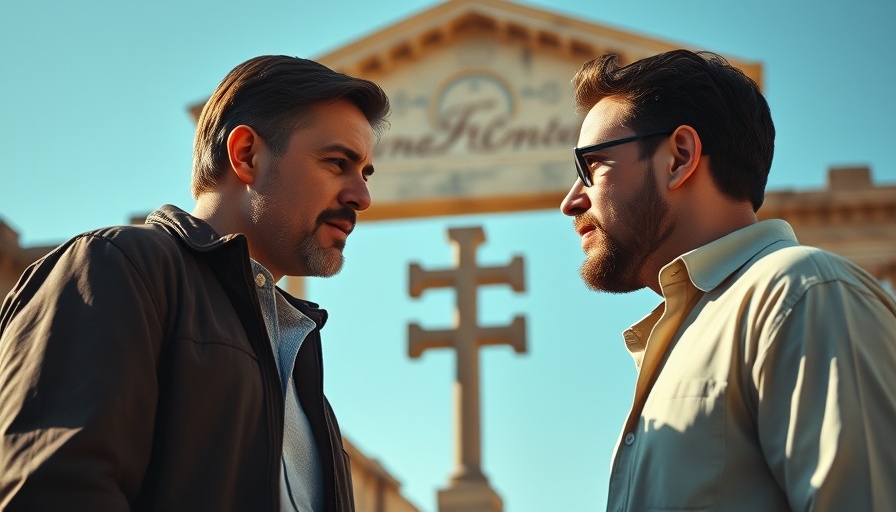
Understanding the WEIRD West: A Christian Influence
The modern Western world, in all its complexity, is a product of deep cultural roots that trace back to Christianity. This influence shapes how we perceive our equality, rights, and morality. What does it mean to be part of a system where we consider everyone to be inherently equal? This question echoes through the ages, challenging the very fabric of our social structure.
In You Are WEIRD (And It’s Christianity’s Fault), the discussion delves into how our perceptions of equality and morality are profoundly influenced by Christianity.
Historical Context: The Shift from Christian Foundations to a Secular Framework
As our society moves further away from its Christian foundations, we find ourselves in a curious cultural phenomenon. The year 1776 is pivotal in this narrative, marking not just the American Declaration of Independence but also a broader shift towards individualism and human rights grounded in Enlightenment thought. The phrase 'self-evident truths,' coined by Thomas Jefferson, initially carried sacred implications, yet was stripped of its religious roots to fit a more secular framework. This change reflects a monumental shift in how we now define our rights.
Counterculture: Understanding Equality Beyond Metrics
When we talk about equality, we must question: equal in what sense? If we measure individuals against various metrics—intellect, wealth, strength—inevitably, disparities emerge. This leads to the realization that our belief in equality is not based on empirical evidence but rather a collective agreement on values deeply rooted in our Christian heritage. These ideas promote a human dignity that transcends mere usefulness or performance in society, an ethos worth exploring further.
Future Insights: Navigating a Post-Christian Landscape
As Western societies evolve, the implications of distancing ourselves from our Christian roots become critical. Without recognizing the deep-seated Christian principles that shaped our current views on human rights and dignity, we might be at risk of losing the very foundations of our civilization. The ongoing discourse between traditional values and emerging worldviews will shape future generations, but will they appreciate the historical contexts that influenced their perspectives?
Practical Insights: Engaging with a Changing Worldview
For believers in today’s culture, it’s essential to recognize that many people hold to moral values that align with Christianity while not acknowledging their origins. Engaging skeptics in conversation about their beliefs—showing them that their sense of equality or justice is deeply influenced by Christian thought—can open doors for deeper dialogues about faith. This strategy fosters understanding rather than confrontation, guiding many toward a more profound inquiry into the nature of truth.
Common Misconceptions Debunked: The Value of Perspectives
Many people assume that our modern ideas of rights and equality are universally self-evident truths. However, this belief largely stems from a Western-centric view that overlooks how various cultures perceive morality and community dynamics. By exploring different cultural frameworks, we can unveil the 'weirdness' of our assumptions and encourage a more nuanced understanding of global viewpoints.
Engaging the Skeptical Mind: A Window for Dialogue
When discussing moral and ethical issues, the challenge lies in imparting that our perceptions of equality are not inherent truths but beliefs born out of a specific historical context. By fostering this understanding, believers can offer a more compelling case for the foundational role of Christianity in forming moral values. Addressing this with curiosity rather than defensiveness will lead to richer conversations and potential conversions.
Conclusion: Reflecting on Our Cultural Heritage
The insights drawn from the podcast discussed in You Are WEIRD (And It’s Christianity’s Fault) illuminate the peculiarities of our Western culture. We must acknowledge that our societal values have roots in Christianity that we often overlook as we move towards a more secular understanding of rights and ethics. As believers, we have an opportunity to guide others to recognize the truth behind their beliefs, and in doing so, invite them to rediscover the significance of the faith that shaped our world. If you feel compelled to explore these deeper truths, we encourage you to engage in discussions about faith and morality within your community.
 Add Row
Add Row  Add
Add 








Write A Comment